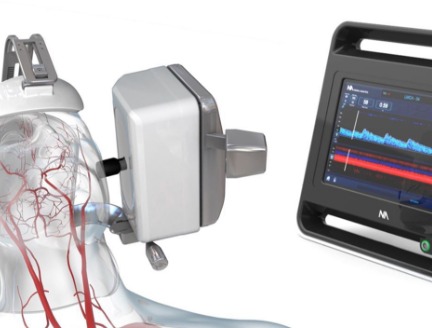



From ancient cultures experimenting with rudimentary surgical techniques to present-day healthcare professionals with access to advanced medical technologies, the enduring quest to improve human health drives the evolution of all surgical aspects. The roots of this practice can be traced across millennia when civilizations grappled with the delicate balance between the benefits of surgery and the potential dangers involved. For instance, The Code of Hammurabi detailed the regulations governing surgeons and medical malpractice in 1750 BCE. The modern approach to surgery debuted in the late 1800s and since then patient outcomes have steadily improved.
Surgery is daunting because of the potential risks associated with it. The decision to undergo surgery should only be taken when the benefits outweigh the inherent risks.
For the healthcare professionals involved in the roughly 310 million surgical procedures performed around the world each year, there are always opportunities for advancement. A key factor in a patient’s risk of surgery-related complications is the procedure’s duration—as the operating time increases, so too does the risk of a surgical site infection and other issues. Meta-analyses of thousands of surgical cases have shown that reducing operating times can improve patient outcomes as well as hospital cost savings.

The current methods for determining which surgical tools are required in a specific case are severely outdated, interrupt workflow and ultimately lead to longer procedures. Unfortunately, there is currently no way to collect the data needed to quantify pre-operative planning optimization, equipment usage, nor any of the countless metrics that define best practices in the operating room. The novel system for intraoperative data collection via RFID technology, “Smart Table,” displays a clear ability to passively collect practical and applicable information during a surgical procedure. Additionally, it showcases a distinct ability to account for items in the operating room much faster than current manual methods.

Stuart J. Corr, PhD
Associate Research Professor of Bioengineering in Cardiovascular Surgery
Inefficient use of surgical instruments can significantly prolong operating times. Stuart Corr, PhD, Director of Innovation Engineering, The Bookout Center, assessed a novel technology from M&S Biotics, Inc. that uses a proprietary radio frequency identification (RFID) technology to track surgical tools in real-time while providing intraoperative data analytics during simulated cardiovascular procedures. Working with M&S Biotics, Corr developed a method for collecting intraoperative cardiovascular analytics with the system that could meaningfully improve current operating room (OR) procedures. This method can potentially lead to safer more efficient surgeries and related improvements in patient outcomes and cost savings.
Stuart Corr, PhD
“The current methods for determining which surgical tools are required in a specific case are severely outdated, interrupt workflow and ultimately lead to longer procedures. Unfortunately, there is currently no way to collect the data to quantify pre-operative planning optimization, equipment usage, nor any of the countless metrics that define best practices in the operating room,” said Corr. “The novel Smart Table’s use of RFID technology for intraoperative data collection displays a clear ability to passively collect practical and applicable information during a surgical procedure. Additionally, it showcases a distinct ability to account for items in the OR much faster than current manual methods.”
This study is the first of its kind to evaluate metal instrument usage via RFID technology and collect insights from intraoperative data analytics. Five surgeons performed 13 simulated surgeries on three human cadavers. Procedures included two abdominal aortic aneurysm repairs, three carotid endarterectomies, two femoropopliteal bypasses, a thoracic aortic aneurysm repair, a coronary artery bypass graft, an aortic valve replacement, an ascending aortic aneurysm repair, a heart transplant and a mitral valve replacement.
A total of 139 instruments were autonomously detected, located, counted and tracked in real time with the Biotics System Beta prototype during these procedures. Out of these, only 40% were used suggesting a high degree of redundancy. Further, the “Smart Table” reduced the end-of-procedure instrument counting times by 58-87%, relative to manual counting. Corr concluded that the data analytics provided by the Biotics System can help refine instrument selection, quantitate instrument utilization and prevent surgical instrument retention inside the patient. Details of this research study are published in the IEEE Journal of Translational Engineering in Health and Medicine.
Benefits of adopting
the "Smart table" include:
Increasing efficiency throughout the procedure that shortens the procedure’s length.
Appropriate tracking of tool usage that prevents surgical instrument retention inside the patient
Data analytics obtained help to improve the efficiency, efficacy and safety of surgical procedures.
Benefits of adopting
the "Smart table" include:
Increasing efficiency throughout the procedure that shortens the procedure’s length.
Appropriate tracking of tool usage that prevents surgical instrument retention inside the patient
Data analytics obtained help to improve the efficiency, efficacy and safety of surgical procedures.
However, there can be challenges to using RFID technology on metal instruments due to tag detuning, re-radiation cancellation and tag shadowing. In this study, the RFID tags were semi-permanently affixed to each instrument, which could introduce unwanted errors. Further studies aimed at evaluating permanently affixed RFID-enabled surgical instruments in longitudinal clinical studies will provide further information.
William Hendricks, Joshua Mecca, Maham Rahimi, Manuel R Rojo, Moritz C Wyler Von Ballmoos, Ross G McFall, Paul Haddad, Marton T Berczeli, Kavya Sinha, Rebecca G Barnes, Eric K Peden, Alan B Lumsden, Thomas E MacGillivray, Stuart J Corr. Evaluation of a Novel System for RFID Intraoperative Cardiovascular Analytics. IEEE J Transl Eng Health Med. 2022 Aug 5:10:1900309. doi: 10.1109/JTEHM.2022.3196832.
This work was supported by the National Center for Advancing Translational Sciences, National Institutes of Health, under Award 1R41TR003249-01.
Abanti Chattopadhyay, PhD
April 2024








